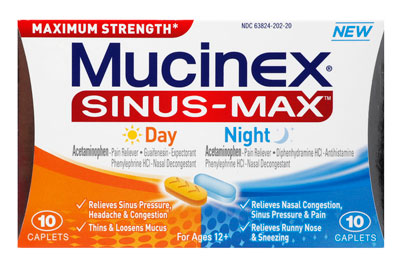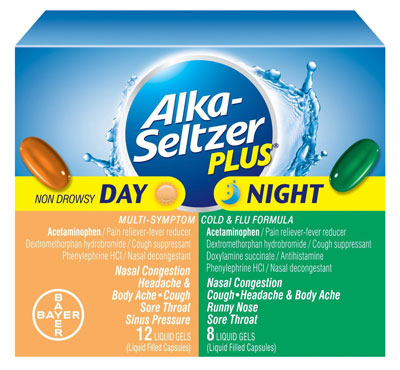Drug Co-Packaging Proposed Rule Could Hamper Some OTC Marketing
Executive Summary
OTC drug packages with separate containers of a product's daytime and nighttime formulations could be mislabeled under US FDA’s proposed rule, as well as co-packaged products with little similarity in use, such as an oral analgesic sold in tandem with a topical pain relief product.
FDA should narrow its proposed definition of “co-packaged” drugs to avoid curtailing OTC firms’ marketing strategy of offering multiple products with similar or different indications in a single package, say industry stakeholders.
A proposed rule published in December 2015 – “Fixed-Combination and Co-Packaged Drugs: Applications for Approval and Combinations of Active Ingredients Under Consideration for Inclusion in an Over-the-Counter Monograph,” docket FDA-2015-N-1260 – would extend FDA regulations on Rx fixed-combination drugs to products with prescription and nonprescription ingredients, co-packaged drugs and combinations of active ingredients under consideration for inclusion in an OTC monograph.
The proposal also states that dietary supplements co-packaged with OTC drugs would be considered unapproved new drugs because they are sold with a drug product. While the proposed rule has been pending for quite some time, the issue is getting renewed attention as the OTC/supplement co-packaging strategy is an emerging sales driver for firms in both industries and is raising questions on how FDA might enforce the proposal if made final (see sidebar).
For OTC drugs, packages with containers of both daytime and nighttime formulations of the same ingredient could be deemed mislabeled under the proposed rule, as well as co-packaged products with little similarity in use, such as an oral analgesic sold in tandem with a topical pain relief product.
The Consumer Healthcare Products Association says the proposal could render common offerings of two or more separate OTCs in a single package as mislabeled if the products are not intended to be used together, according to the trade group’s March 2016 comments to FDA’s Center for Drug Evaluation and Research.
“We disagree that shrink wrapping absent labeling such as ‘convenience’ or ‘value pack’ is an implied claim that the products are intended to use used together,” wrote Barbara Kochanowski, the trade group’s regulatory and scientific affairs vice president.
Kochanowski explained that because "‘co-packaged’ has multiple meanings outside of the regulatory environment,” CHPA is “concerned that this proposed rule, unless much more clearly clarified regarding exemptions, may have unintended consequences and cause regulatory uncertainty for manufacturers and retailers.”
Kochanowski pointed out that other marketing terms used for self-care products sold together include “family pack, bonus pack, convenience pack, free sample, first aid,” and “there could be many other terms used in the future that are also acceptable but not clearly” defined as compliant and not subject to the proposed rule.
CHPA suggests CDER define a co-packaged drug as “a product that contains two or more separate drugs in their final dosage forms that are intended to be used together at the same time for a common or related therapeutic purpose, labeled as such, and that are contained in a single package or unit.”
Bayer AG, manufacturer of OTC products including the Alka-Seltzer lines and the Aspirin brand, also suggested in March 2016 comments that CDER refine its definition for co-package. The proposed definition “is overly broad and could lead to consumer confusion,” wrote Todd Paporello, vice president and head North American regulatory affairs pharmaceuticals and consumer health at Bayer’s Whippany, N.J., office.
CDER should modify the definition by adding to “intended to be used together” the phrase “as evidenced by their labeling for use for the same indication in the same population,” Paporello said. The qualifying phrase would exclude from FDA’s “co-packaged drug” definition products with labeling that “does not treat the same symptoms in the same population.”

Reckitt Benckiser’s Mucinex Sinus-Max and Bayer’s Alka-Seltzer Plus offerings with day and night formulations in a single package could be mislabeled under an FDA proposed rule on co-packaging.

“Consumers see and are familiar with a variety of product packaging that is currently on the market that has samples or other unrelated items attached. Regardless of whether labeled with ‘value’, ‘convenience’ or other similar words, it is clear from their labeling that the products are not intended or implied to be used together,” he added.
Additionally, Paporella noted co-packaging for daytime and nighttime formulations of the same product should be considered compliant with FDA labeling regulations. “There is nothing in the labeling of day and night products that suggests or states that the products are to be used together simply because they are co-packaged together. Regardless of whether a product is intended for use during the day or night, the product has to have labeling for the safe and efficacious use of the product,” he stated.
In its most recent but non-buiding update to its regulatory agenda, FDA estimated it would issue a final rule in October 2018. Response to the proposal promoted FDA to extend the comment period in early 2016. (Also see "Industry Roundup: DXM Bill Moves, CHPA Biz Dev VP, Neurobrands Injunction" - HBW Insight, 25 Apr, 2016.)
From the editors of the Tan Sheet.
